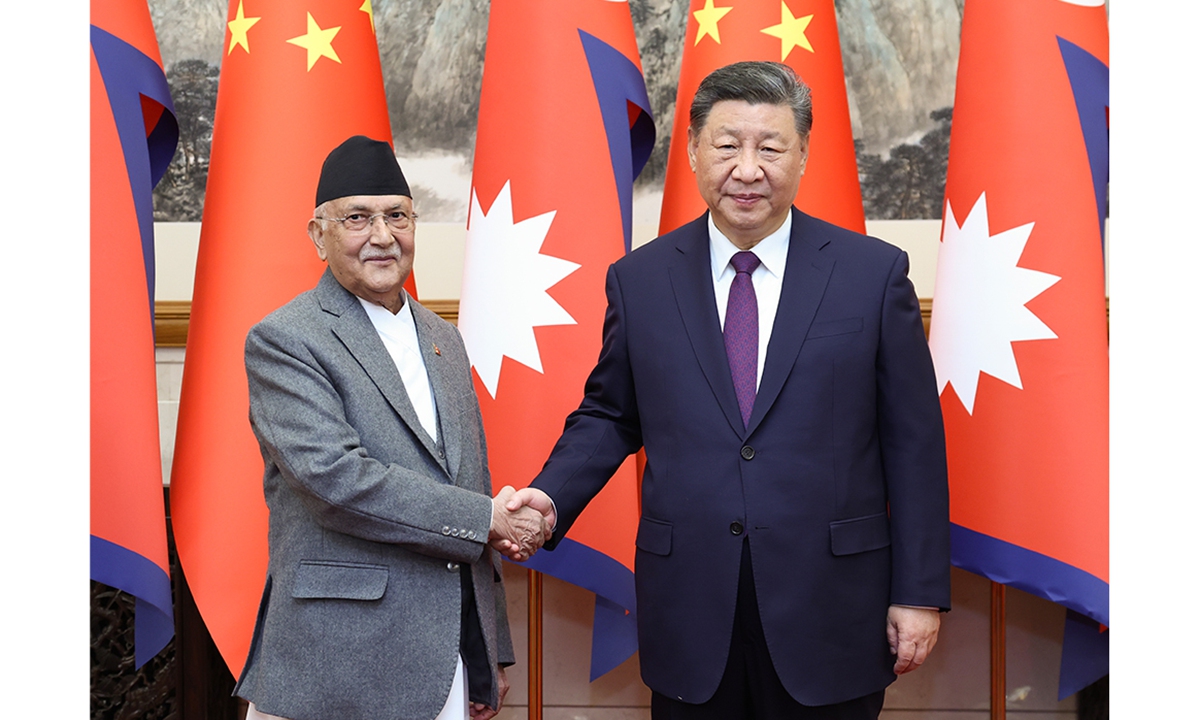Nepal Bows to Beijing? Oli's 'Xizang' Gambit Sparks Global Outcry!

Nepal's new Prime Minister, KP Sharma Oli, made waves this week on his first international visit to Beijing. In a historic shift, Nepal referred to Tibet as "Xizang" in a joint statement with China, a term favored by the Chinese government but seen by Tibetan advocates as an erasure of their cultural identity.
This move, along with Oli's extended visit and agreements related to China's Belt and Road Initiative (BRI), highlights China's growing influence in Nepal. Experts believe Nepal seeks economic benefits from closer ties with China, even at the cost of potentially neglecting the Tibetan cause.
A Change in Terminology and a Price to Pay
The use of "Xizang" instead of "Tibet" has drawn criticism. Sriparna Pathak, a China studies expert, views it as Nepal appeasing China at the expense of the Tibetan struggle. This, she fears, could negatively impact Tibetan refugees living in Nepal.
China experts point to potential investments worth millions as a reason for Nepal's restrictions on Tibetan activities. Oli's visit secured agreements related to the BRI, a grand infrastructure project aimed at boosting global trade. Additionally, Nepal's police regularly detain Tibetans for questioning during high-profile Chinese visits, and tighten surveillance during Tibetan cultural celebrations.
Stalled Projects and a Debt Trap?
Despite signing an initial agreement to join the BRI in 2017, highway construction and other projects haven't progressed. Oli's visit included a framework agreement to get these projects moving, with China promising to transform Nepal into a "land-linked hub."
However, Nepal's preference for grants over loans for BRI projects initially delayed the deal. They eventually agreed on a combination of both, raising concerns of "debt-trap diplomacy" by China. Critics warn that nations might become financially obligated to China through such projects, potentially compromising their political autonomy.
Nepal's Balancing Act
The previous prime minister's joint statement with China mentioned "never allowing any separatist activities" on Nepalese soil, but without using "Xizang." Now, Nepal's stance seems to have shifted further towards China's agenda. This trend, experts believe, is likely to continue as China uses economic power to achieve its political goals.
Nepal finds itself in a precarious position, balancing its traditional ties and its desire for economic development offered by China. Only time will tell how this delicate dance will play out in the future.




![From Kathmandu to the World: How Excel Students Are Winning Big [Admission Open]](https://nepalaaja.com/img/70194/medium/excel-college-info-eng-nep-2342.jpg)
